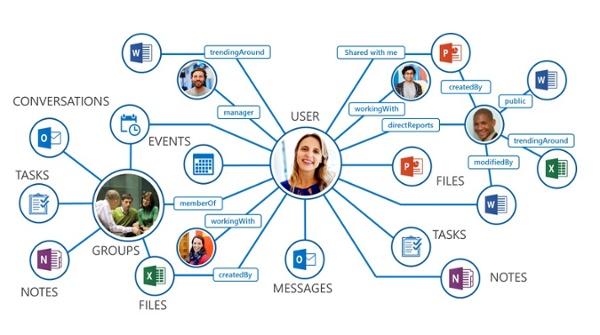On Monday, January 15, 2024, Microsoft officially unveiled Copilot for Microsoft 365, extending its availability to all customers. Copilot for Microsoft 365 is a powerful set of tools that help to organize and connect your accounts, data, and online resources, but only for the data that users are allowed to see. For this reason, it is crucial to use permission settings in Microsoft 365 services to control who has access to what content in your organization. Additionally, the implementation of this powerful tool requires careful planning, and strategic deployment, differentiating it from other conventional Office applications.

Copilot Tech Stack
The tech stack for Microsoft 365 Copilot includes several components that need to be understood and tuned for your specific business needs. The danger of not doing the preparation work could be user frustration and erroneous output.
- M365 Copilot: Delivers the end-user experience. It's the main application that appears in Word, PowerPoint, Excel, Teams, and more and will organize and create content based on its analysis of data and relationship mapping.
- Copilot Studio: A companion developer application for customizing Copilot to the way you work.
- Semantic Index: An indexing tool used by Copilot to organize and search your data.
- Microsoft Graph: Microsoft Graph is the gateway to data and intelligence in Microsoft 365. Graph connectors can be used to access other data sources for relevant information.
Is Your Data Ready?
Before deploying Microsoft 365 Copilot, ensure that your data is organized, secured, and ready for analysis. The tool will find relationships that may not always be timely, correct, or appropriate for the user to have access to.
Are the Right Permissions in Place?
Microsoft 365 Copilot will find and access data the user has permission to, whether they should or not. Therefore, it’s essential to review and set the correct permissions beforehand.
What About Key Data Not in Your Microsoft 365 Tenant?
Microsoft 365 Copilot can also handle key data not stored in your Microsoft 365 tenant, such as SQL databases. However, you’ll need to ensure that these data sources are accessible and correctly configured for use with Copilot.
Licensing and Prerequisites
Microsoft 365 Copilot licensing is currently available on an annual subscription of $360 per user. The user must have a Microsoft 365 commercial plan, such as Microsoft 365 Business Premium or Microsoft 365 E3 or E5 plan. Copilot for Microsoft 365 is not yet available for nonprofit, academic, or government clients.
How You Can Prepare
SharePoint Data Audit
Before deploying Microsoft 365 Copilot, you’ll need to prepare your environment. This includes setting up the necessary permissions, ensuring that your data is ready, and configuring your tech stack. Systems Engineering can assist with auditing your SharePoint data for integrity and security.
Configuring Copilot
Systems Engineering can help you connect to other data sources besides what's in your Microsoft 365 tenant as well as customize Copilot to be more specific to your business operations.
Evaluation and Education
The introduction of Copilot for Microsoft 365 last week marked Systems Engineering's initial opportunity to engage with this new tool. Currently, we are thoroughly evaluating what is necessary to establish our Copilot practice to ensure our clients can maximize its benefits.
Concurrently, we are in the process of arranging in-person events for the first half of this year to cover broad AI adoption themes, followed by dedicated sessions for Copilot. Additionally, we are organizing webinars and exploring the possibility of Copilot workshops.
Here are some additional resources for you to reference:
- How Microsoft Copilot Can Boost Business Productivity with AI
- Expanding Copilot for Microsoft 365 to businesses of all sizes
- How Microsoft Copilot for Microsoft 365 works
If you are a Systems Engineering client and have questions about this blog, please reach out to your Account Manager. Others, please visit our EVENTS page for upcoming events and connect with us at info@systemsengineering.com or call 888.624.6737.





